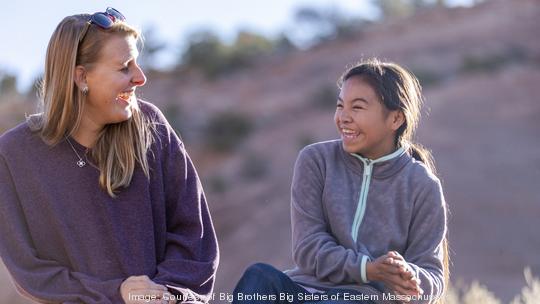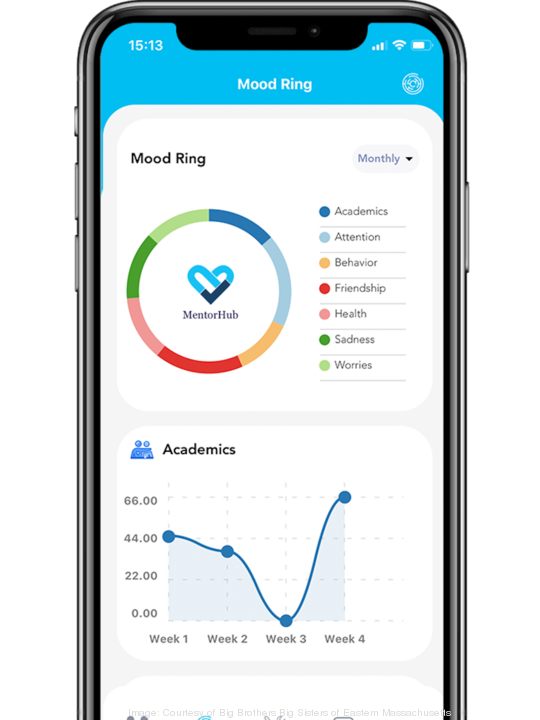
Getting kids to close apps like TikTok and instead sign into educational and wellness ones is easier said than done. But Jean Rhodes, a professor at the University of Massachusetts Boston, is on a mission to change that.
Rhodes, author of the book “Older and Wiser: New Ideas for Youth Mentoring in the 21st Century,” is piloting her app MentorHub with the Big Brothers Big Sisters of Eastern Massachusetts (BBBSEM).
MentorHub partners with organizations like Khan Academy and Headspace to provide children with virtual tools that can help them resolve their challenges, including mental and educational ones.
Users fill out a baseline assessment when they sign in so they can describe what mood they’re in and what challenges they want to work on. The platform then recommends apps or programs that are scientifically proven to improve outcomes.
Mentors are able to sign in and see what the user has done on their end and how much time they spent on each app.
“What it does is it enables their mentors, or their Bigs, to see whether or not they've used it and, if they haven't been using it, to nudge them,” Rhodes said. “It's really getting people to use things but not nagging them.”
Rhodes runs the Center of Evidence-based Mentoring at UMass Boston. She worked with a team of five clinical researchers and a New York-based web app developer to create MentorHub. Rhodes said her sister, a computer science engineer, inspired her to come up with the idea.
Meanwhile, as she researched more for her book on mentoring, Rhodes came across the term "supportive accountability." She realized an app like hers could only work with people who already formed organic relationships with one another.
“As I dug into the research on technology-delivered interventions, I saw that the reopen rate [for these apps] after the initial installation is only at 5 percent,” Rhodes said. MentorHub, with its built-in accountability tools, seemed “like a really good solution.”
“What we're finding is that app providers are really eager to partner with us because not a lot of kids are using these apps — particularly marginalized kids,” Rhodes said. “We have these [kids] in need of coaching, and we have these coaches in need of targeted, evidence-based treatments, and we kind of put them together.”

BBBSEM President and CEO Mark O’Donnell, who has known Rhodes for almost a decade, said his organization was also in need of technology-based solutions, especially when face-to-face interventions became limited during the pandemic.
Big Brothers Big Sisters mentors students between the ages of 7 and 13 by pairing them with adults who are 25 to 37 years old.
“Most kids at that age, 7-plus, they're using apps that are social and they're using apps that are fun," O'Donnell said. "This is also a platform of teaching our youth how to use apps that can help them [and] not just be fun.”
In order to see if the app can truly make a difference in the lives of young people, O’Donnell said about 50 mentors and 50 mentees in his program will begin piloting it in October. The hope is that all 8,000 Bigs and Littles across Eastern Massachusetts will have access to the app. Almost 1 million throughout the Big Brothers Big Sisters network nationally will, too.
Another benefit of the app: Psychologists will be able to analyze data behind mentoring relationships. Rhodes said the chat function of the app can be seen by Match Support Specialists who can use text mining to see how mentoring relationships evolve.
With much attention given to distance learning at the moment, Rhodes said the waitlist for MentorHub is growing. She hopes that foundational support will lead to earned revenue from universities and other systems that can afford it.
“I could see it in college mental health systems as a way to extend mental health care to more students and offer academic support to more students,” Rhodes said. “I really see this as having a lot of value beyond just mentoring programs.”
Jordan Frias is a contributing writer for BostInno.




